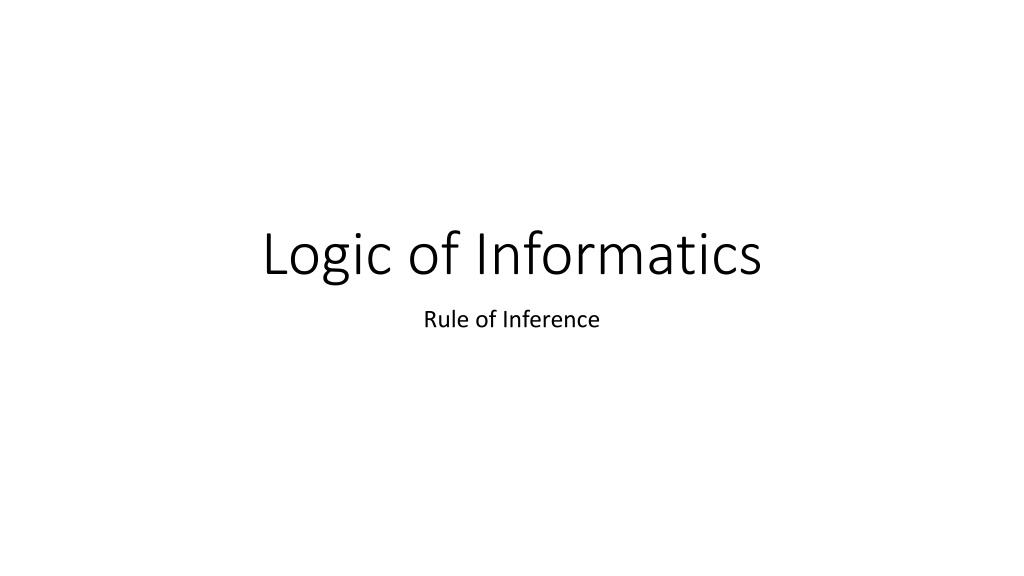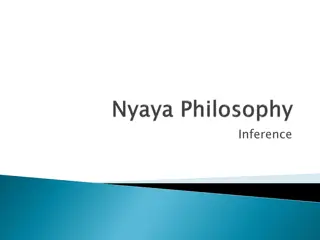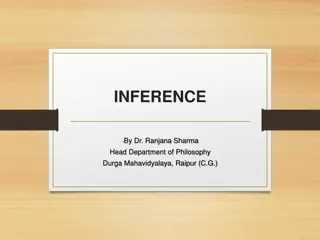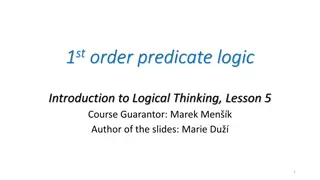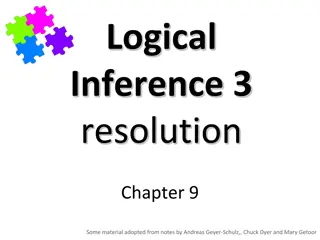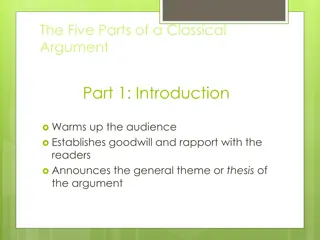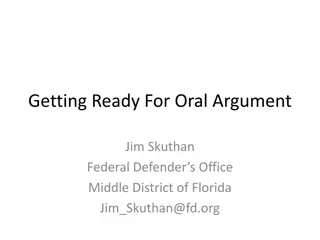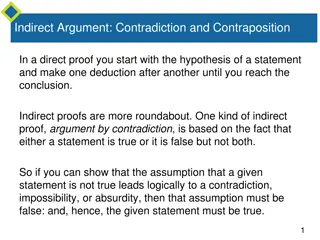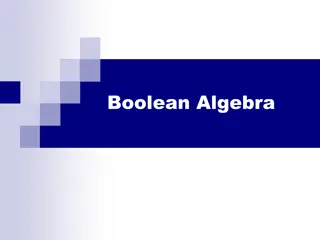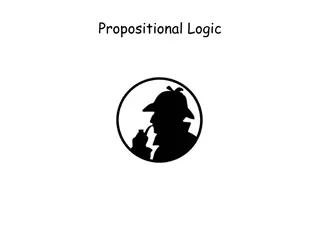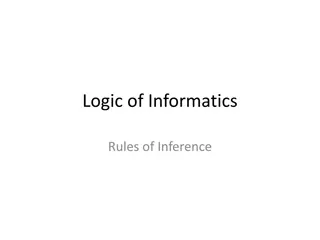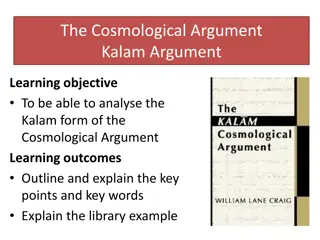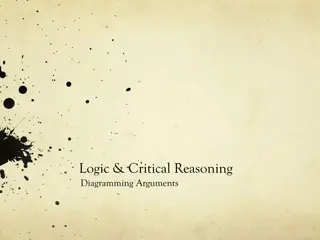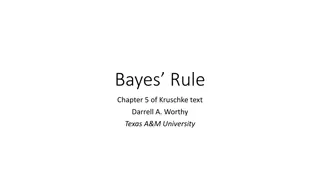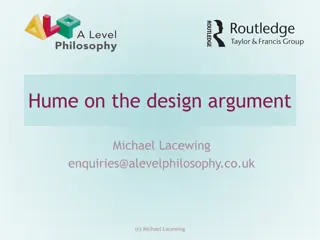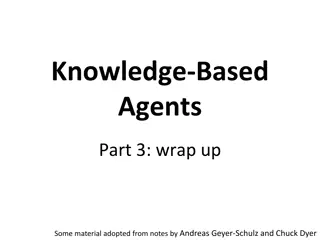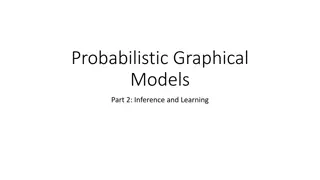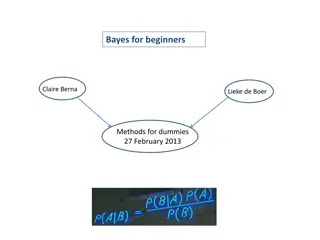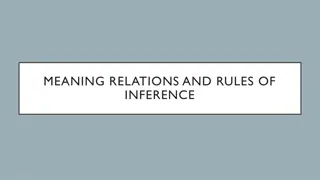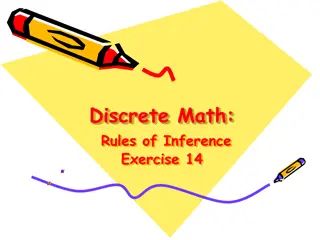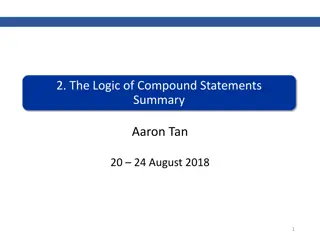Rule of Inference and Logical Argument
The principles of logic in informatics through rules of inference and logical arguments. Dive into various scenarios and apply deductive reasoning to analyze statements and draw conclusions based on logical rules.
Download Presentation

Please find below an Image/Link to download the presentation.
The content on the website is provided AS IS for your information and personal use only. It may not be sold, licensed, or shared on other websites without obtaining consent from the author.If you encounter any issues during the download, it is possible that the publisher has removed the file from their server.
You are allowed to download the files provided on this website for personal or commercial use, subject to the condition that they are used lawfully. All files are the property of their respective owners.
The content on the website is provided AS IS for your information and personal use only. It may not be sold, licensed, or shared on other websites without obtaining consent from the author.
E N D
Presentation Transcript
Logic of Informatics Rule of Inference
Question 1 ? (? ?) ? ? ? Prove: ?
Question 2 ? ? ? (? ?) ? ? Prove: ~?
Question 3 ~(? ?) C ~? ~? Prove: ?
Question 4 A B C D Argument: 1. 2. : I made a B on the test. : I made an A on the test. : I am happy with my test grade. : I think I will make a good grade in the course. If I made an B or an A on the test, then I am happy with my test grade. If I am happy with my test grade, then I think I will make a good grade in the course. I do not think I will make a good grade in the course. Therefore I did not make an A on the test. 3. 4.
Question 5 P: I drink coffee. Q: I will get a lot of work done. R: I am sleepy. S: I am grumpy. Argument: 1. If I drink coffee, then I will get a lot of work done. 2. If I don t drink coffee, then I am sleepy. 3. If I am sleepy, then I am grumpy. 4. Therefore if I don t get a lot of work done, then I am grumpy.
Question 6 Premise #1: If the book is returned within 2 weeks, then there is no fine. Premise #2: You pay a fine or you may not check out another book. Premise #3: You are allowed to check out another book. Conclusion: So, the book was not returned within 2 weeks.
Question 7 Premise #1: If this is a good product, then we should buy it. Premise #2: Either it was made by XYZ Corporation, or we will not buy it. Premise #3: It is not made by XYZ Corporation. Conclusion: So, it is not a good product
Question 8 Premise #1: If Bill is patient, then he will succeed. Premise #2: Bill will get bonus pay if he succeeds. Premise #3: Bill did not get bonus pay. Conclusion: So, Bill is not patient
Question 9 Premise #1: If Sue drives to work, then she will stop at the grocery store. Premise #2: If she stops at the grocery store, then she ll buy milk. Premise #3: Sue drove to work today. Conclusion: So, Sue will get milk.
Question 10 With these hypotheses: 1. It is not sunny this afternoon and it is colder than yesterday. 2. We will go shopping only if it is sunny. 3. If we do not go shopping, then we will take a canoe trip. 4. If we take a canoe trip, then we will be home by sunset. Using the inference rules, construct a valid argument for the conclusion: We will be home by sunset.
